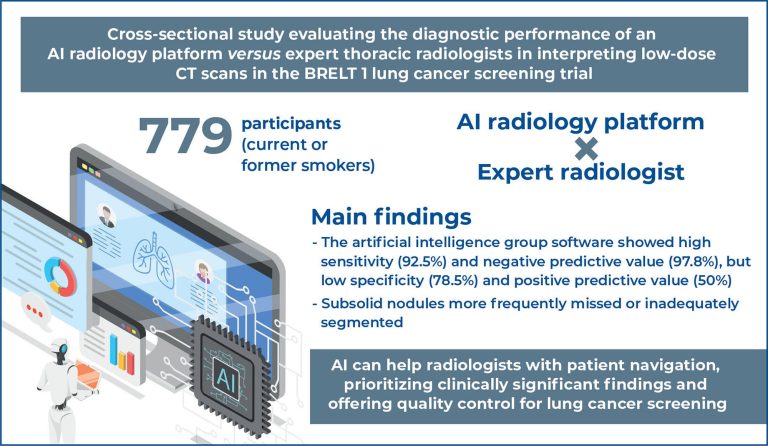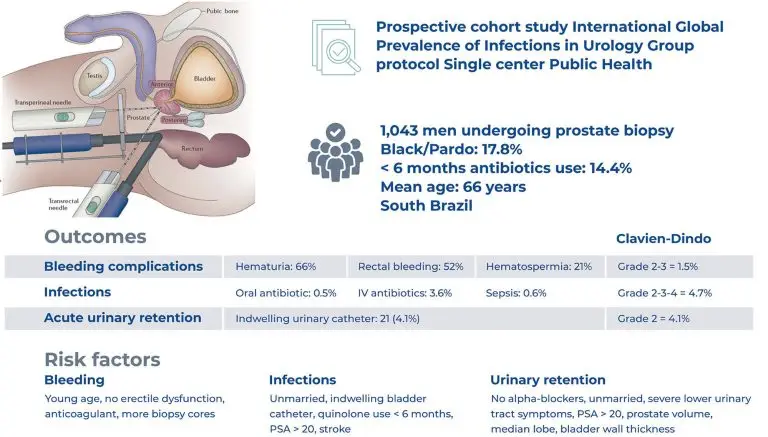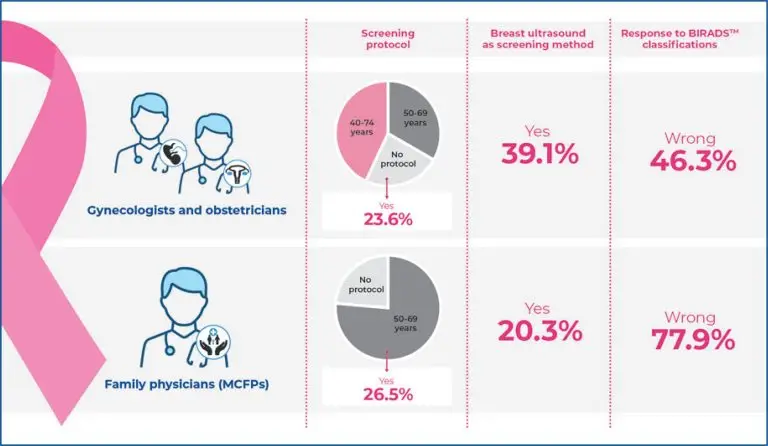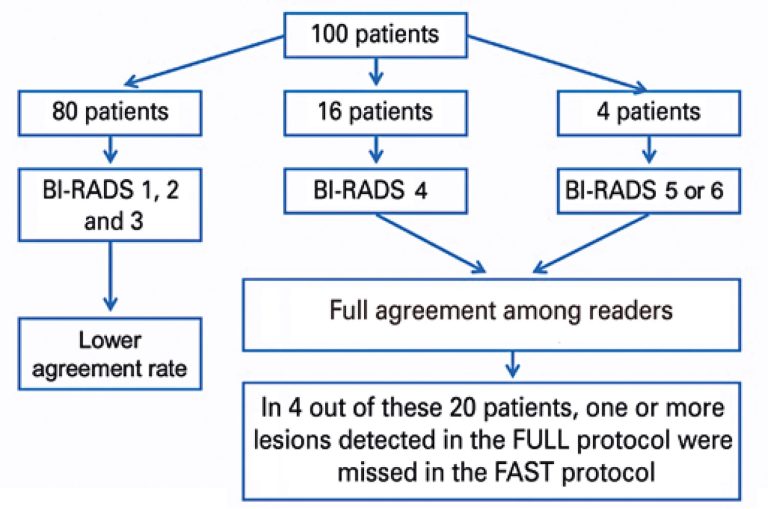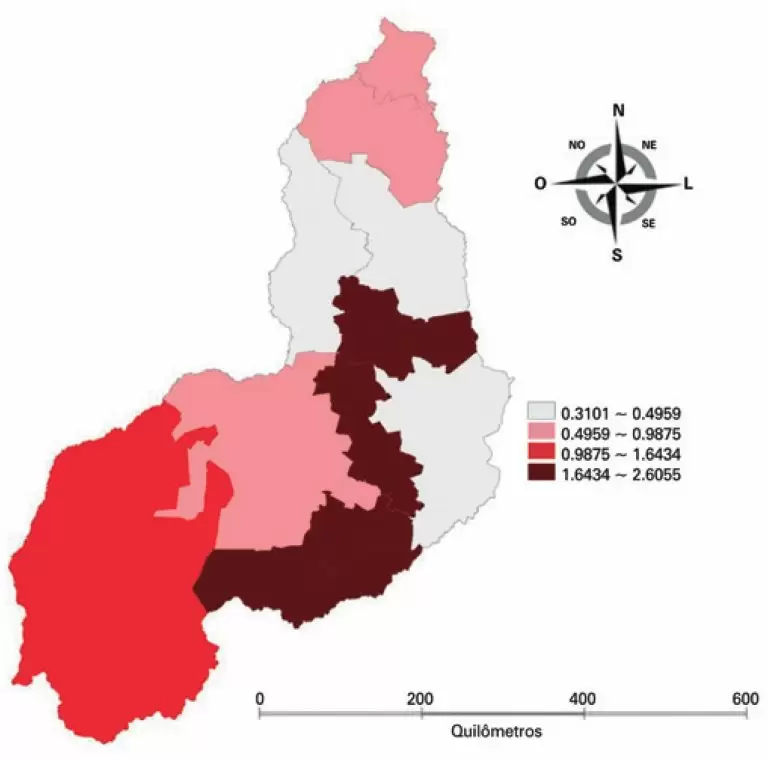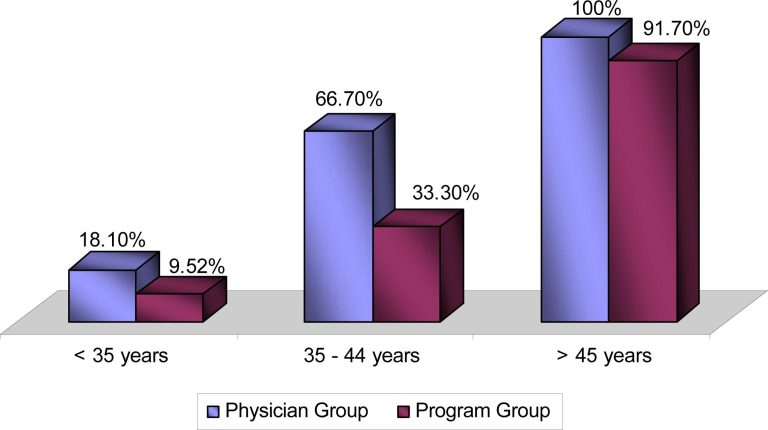10/Nov/2025
Artificial intelligence in a Brazilian lung cancer screening program: accuracy and predictive values
DOI: 10.31744/einstein_journal/2025AO1283
Highlights ■ The artificial intelligence tool demonstrated high sensitivity (92.5%) and a negative predictive value of 97.8%. This effectively excluded examinations that were not clinically significant. ■ However, its low specificity (78.5%) and positive predictive value (50%) emphasize the importance of radiologist’s supervision. ■ – artificial intelligence missed 4.7% of nodules measuring >6mm, most of which were subsolid (62%). ■ The tool has the potential to improve workflows in lung cancer screening programs. ABSTRACT Objective: We aimed to investigate the […]
Keywords: Artificial intelligence; Lung neoplasms; Mass screening; Radiation dosage; Tomography, x-ray computed
08/Aug/2025
Transrectal prostate biopsy complications: a prospective single center study in a mid-income country
DOI: 10.31744/einstein_journal/2025AO1437
Highlights ■ This prospective cohort study assessed prostate biopsy complications in 1,043 men. ■ The major outcomes included bleeding (Clavien-Dindo Grades 2–3 = 1.5%), infections (4.7%), and urinary retention (4.1%). ■ The key risk factors for infection were recent quinolone use, indwelling catheters, and high PSA levels. ■ Acute urinary retention was linked to untreated lower urinary tract symptoms, prostate volume, intravesical prostatic protrusion, and bladder wall thickness. ABSTRACT Objective: To identify complications following transrectal posterior biopsies in a public […]
Keywords: Drug resistance; Early detection of cancer; Image-guided biopsy; Mass screening; Prostatic diseases; Risk Factors; Urinary tract infections
07/Oct/2024
Knowledge related to breast cancer screening programs by physicians in Brazil
DOI: 10.31744/einstein_journal/2024AO0760
Highlights Variability in screening protocols: only 42.8% of gynecologists and obstetricians follow the 40-74 years protocol, while 76.6% of family physicians follow the 50-69 years protocol. High rate of incorrect BIRADS™ interpretation: there were 46.3% incorrect responses among gynecologists and obstetricians and 77.9% among family physicians, highlighting significant knowledge gaps. Misconception about breast ultrasound: 39.1% of gynecologists and obstetricians and 20.3% of family physicians incorrectly consider ultrasound as a screening method. Impact of inadequate training: inadequate training leads to improper […]
Keywords: attitudes; Brazil; Breast neoplasms; Family; Gynecologists; Health knowledge; Mammography; Mass screening; Obstetricians; Physicians; practice; Preventive medicine; Surveys and questionnaires
08/Jul/2022
FAST breast magnetic resonance imaging: a new approach for breast cancer screening?
DOI: 10.31744/einstein_journal/2022AO0073
ABSTRACT Objective To develop an abbreviated breast magnetic resonance imaging protocol (FAST) and to compare it with the complete protocol (FULL) to determine its diagnostic accuracy for detecting malignant or suspicious lesions (BI-RADS 4, 5 and 6) and the time required for image interpretation using BI-RADS categorization. Methods Retrospective study with 100 consecutive women who underwent breast magnetic resonance imaging between January and February 2014. All patients were submitted to a complete breast magnetic resonance imaging protocol, which was then […]
Keywords: Breast; FAST; Magnetic resonance imaging; Mass screening
22/Nov/2021
Prostate cancer awareness in the city of São Paulo
DOI: 10.31744/einstein_journal/2021AO6325
ABSTRACT Objective: To evaluate awareness of prostate cancer in the population of the city of São Paulo. Methods: A total of 392 adults were randomly interviewed on public spaces in the city of São Paulo, and answered a questionnaire that addressed demographic questions and specific knowledge about the prostate cancer. A score was used to assess awareness of cancer in general, and of prostate cancer, considering satisfactory knowledge a score of 6 points. Results: The mean age was 36.9 years […]
Keywords: Knowledge; Mass screening; Prostatic neoplasms; Surveys and questionnaires
04/Jul/2018
Incidence of variant hemoglobins in newborns attended by a public health laboratory
einstein (São Paulo). 04/Jul/2018;16(2):eAO4150.
View Article04/Jul/2018
Incidence of variant hemoglobins in newborns attended by a public health laboratory
DOI: 10.1590/S1679-45082018AO4150
ABSTRACT Objective To evaluate the incidence of variant hemoglobins in different health regions. Methods A descriptive, observational, and cross-sectional study with a quantitative approach based on secondary data in the internal records of the neonatal screening service – Laboratório Central de Saúde Pública do Estado do Piauí (PI, Brazil). The variables related to sex, ethnicity and positive diagnosis for variant hemoglobins were analyzed, with further population distribution of hemoglobinopathies among the macroregions of the state. Results A total of 69,180 […]
Keywords: Anemia, sickle cell; Hemoglobinopathies; Infant, Newborn; Mass screening; Neonatal screening; Public health
01/Jul/2016
Associated factors with mammographic changes in women undergoing breast cancer screening
DOI: 10.1590/S1679-45082016AO3708
ABSTRACT Objective: To evaluate association of sociodemographic, anthropometric, and epidemiological factors with result of mammogram in women undergoing breast cancer screening. Methods: This is a cross-sectional study with data obtained through interviews, anthropometric measurements, and mammography of 600 women aged 40 to 69 years at the Preventive Medicine Department of Hospital de Câncer de Barretos, Brazil, in 2014. The results of these examinations in the BI-RADS categories 1 and 2 were grouped and classified in this study as normal mammogram […]
Keywords: Breast neoplasms; Mammography; Mass screening; Obesity
01/Jan/2010
Active search of women as an efficacy factor for a breast and cervical cancer screening program in the city of Jundiaí, São Paulo, Brazil
einstein (São Paulo). 01/Jan/2010;8(1):34-9.
View Article01/Jan/2010
Active search of women as an efficacy factor for a breast and cervical cancer screening program in the city of Jundiaí, São Paulo, Brazil
DOI: 10.1590/S1679-45082010A01454
ABSTRACT Objective: To compare the profile of women looking for gynecological care to the profile of women invited to participate in the program, assessing breast and cervical cancer risk factors in each group and comparing Papanicolaou’s test and mammography results. Methods: Medical records of 46 women participating in a breast and cervical cancer prevention program and 42 medical reports of women that regularly visited the primary healthcare unit from August to December 2006 were examined. Results: The mean interval between […]
Keywords: Breast cancer prevention; Breast neoplasms; Cervix neoplasm prevention; Evaluation of the efficacy-effectiveness of interventions; Mammography; Mass screening; Patient acceptance of health care/ethnology; Uterine cervical neoplasms; Vaginal smears


